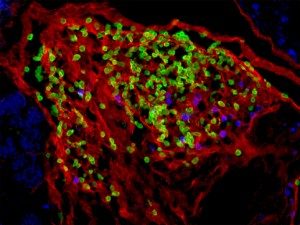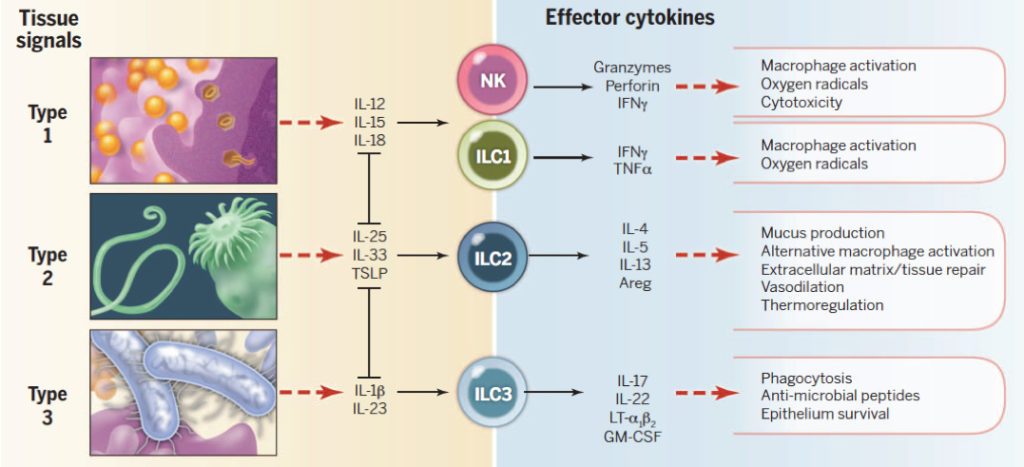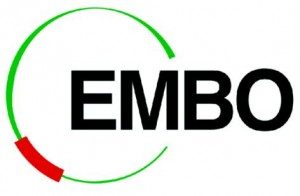About
Innate lymphoid cells (ILCs) are a newly discovered family of lymphocytes that is mobilizing the immunological community worldwide. Three types of ILCs have been described, termed ILC1, 2 and 3, which phenocopy T helper cells in their production of cytokines and regulation of immune responses against intracellular, extracellular or multicellular pathogens. ILCs act promptly, responding directly to local cues from injured or infected tissues, as well as from the symbiotic microbiota. Thus, immune regulatory functions long thought to be characteristic of T helper cells are carried out by ILCs early in the immune response and shown to shape the developing adaptive immunity. In this project, we evaluate the impact of ILCs on the development of innate and adaptive immunity and on the regulation of immune responses and memory. We also evaluate the role of ILCs in functions beyond immunity, such as fat metabolism and tissue repair. To that aim, we have developed a series of transgenic mice that allow for the specific ablation of ILC1, 2 or 3 in a time-controlled manner. Our long-term objective is the development of reagents to manipulate the activity of ILCs, in order to control immunity in immunotherapy and vaccinology, and to adjust immunity to the type of pathogen and injury encountered.











